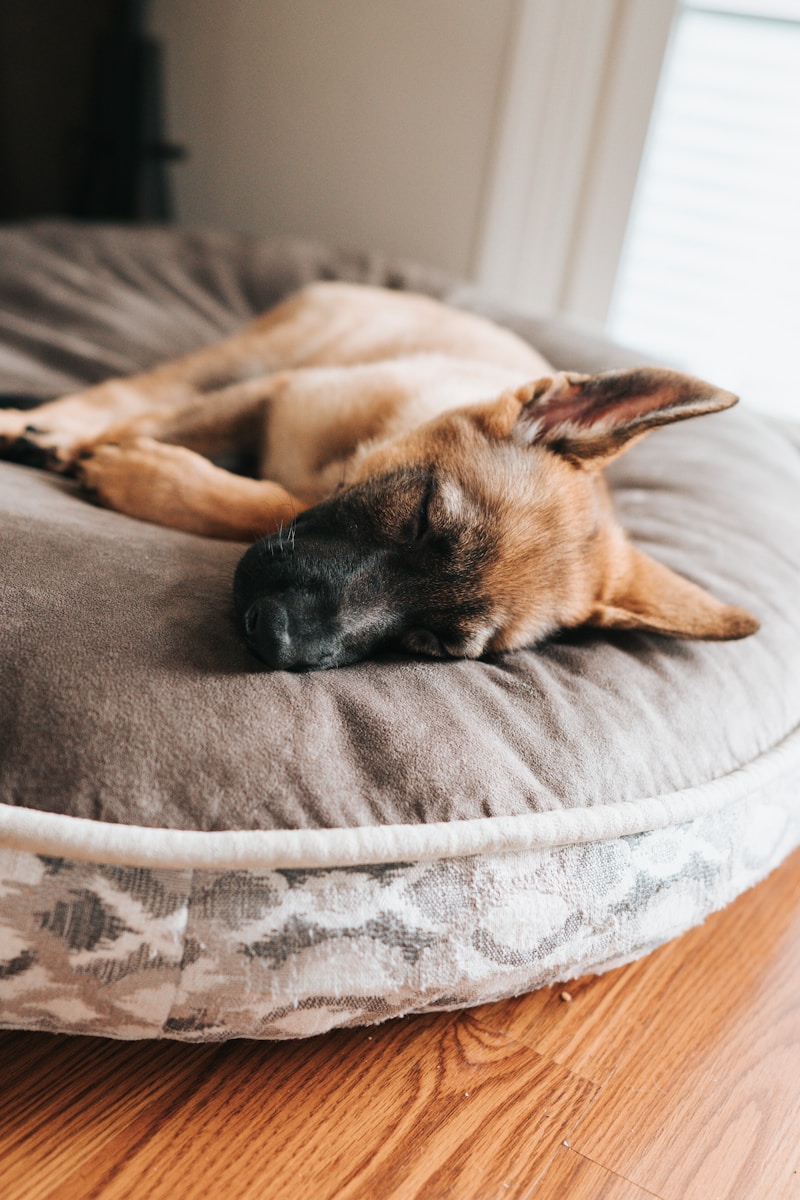Why Do Dogs Sleep So Much?
Hello, dog enthusiasts! If you’ve ever noticed your furry friend spending a good part of the day snoozing and wondered why dogs sleep so much, you’re not alone. It might seem like dogs are always on standby mode, ready to nap at any moment. Let’s explore why dogs have such sleepy habits and what it means for their health and behavior.
The Sleep Patterns of Dogs
Reasons Dogs Sleep a Lot:
- Age Factors: Puppies and older dogs tend to sleep more than adult dogs. Puppies are growing and require more rest, while older dogs may need more sleep due to their aging bodies.
- Breed Characteristics: Some breeds, especially larger ones, are known for needing more sleep. For example, Saint Bernards and Mastiffs often snooze more than smaller, more energetic breeds like Terriers.
- Activity Levels: Dogs that are very active during the day may need more sleep to recover. Conversely, dogs that don’t get much physical or mental stimulation might sleep out of boredom.
- Health and Well-being: Just like humans, dogs need sleep for their health. Sleep helps maintain their immune system, memory, and cognitive functions.
Impact of Excessive Sleeping
When to Be Concerned:
- Sudden Increase in Sleep: If your dog starts sleeping significantly more than usual, it could be a sign of health problems such as diabetes, hypothyroidism, or depression.
- Lethargy and Disinterest: Dogs who are lethargic or disinterested in activities they usually enjoy may be experiencing health issues. This is especially notable if the sleepiness is accompanied by changes in appetite or behavior.
- Interrupted Sleep: Just like in people, poor quality sleep can affect a dog’s overall health. If your dog seems restless at night or wakes up frequently, it might be time to consult a vet.
How to Support Healthy Sleep Habits
Tips for Promoting Good Sleep:
- Regular Exercise: Ensure your dog gets plenty of exercise during the day. A tired dog is more likely to have a good night’s sleep.
- Comfortable Sleeping Environment: Provide a comfortable, quiet sleeping area for your dog. A good bed and a peaceful location can make a big difference.
- Routine: Dogs benefit from having a routine. Try to keep your dog’s bedtime and wake-up time consistent, even on weekends.
- Diet and Health: Maintain a healthy diet for your dog and keep up with regular vet visits to ensure there are no underlying health issues affecting their sleep.
Conclusion
Dogs sleep a lot, but usually, it’s perfectly normal and essential for their well-being. By understanding the factors that influence your dog’s sleep patterns and ensuring they have a healthy lifestyle, you can help support their sleepy nature. Always pay attention to changes that could indicate health issues and consult with your vet when necessary.
By keeping an eye on your dog’s sleep patterns and ensuring they’re healthy and active, you can ensure your canine companion enjoys their rest and stays happy and healthy.







